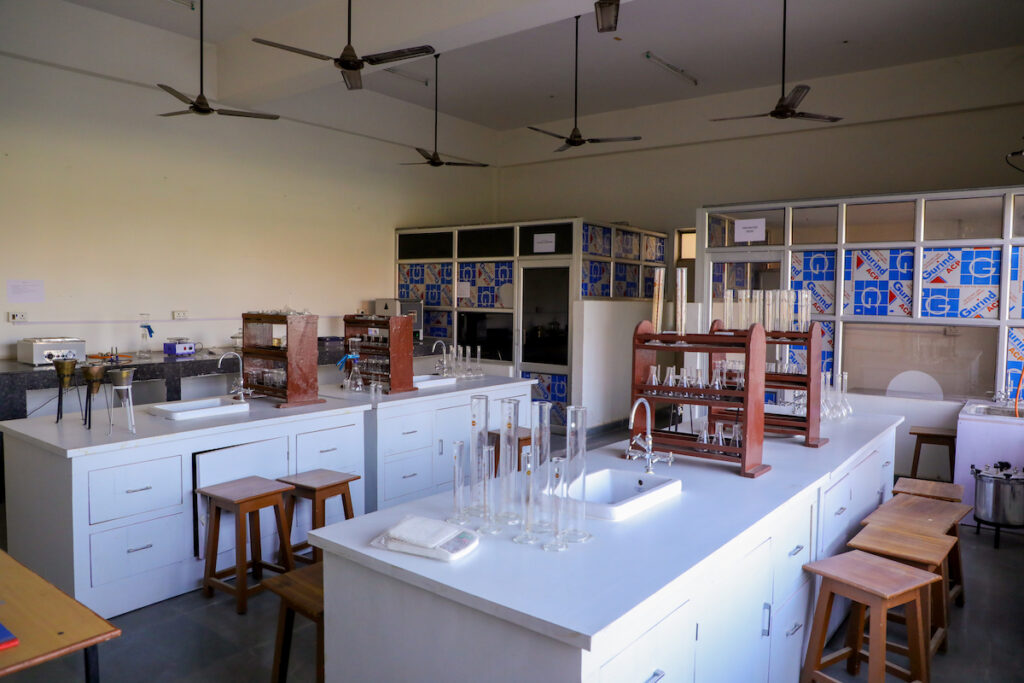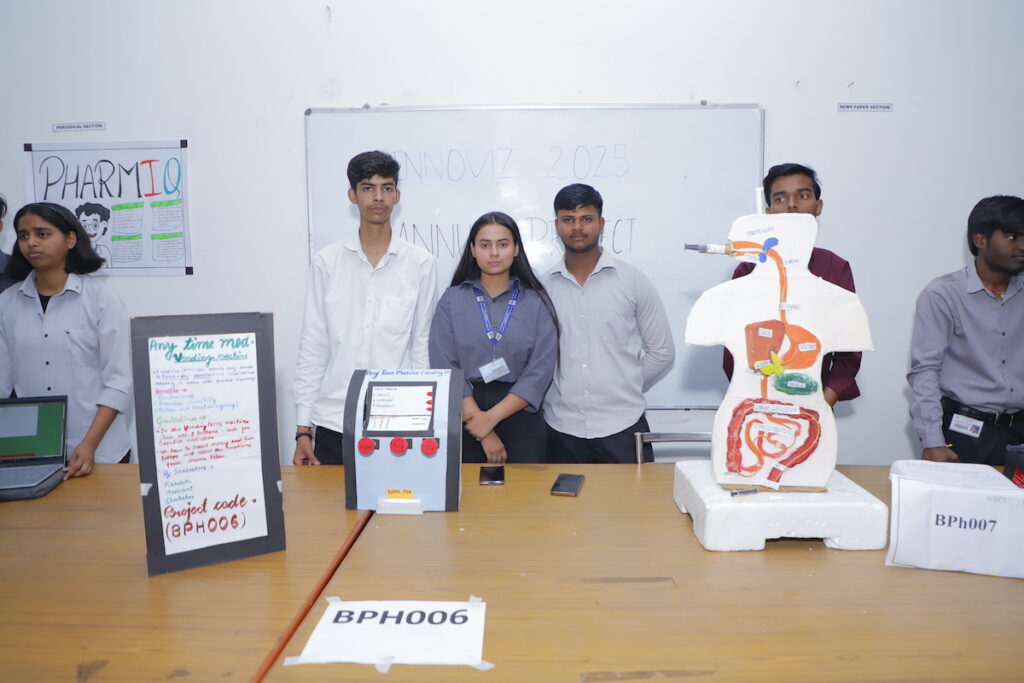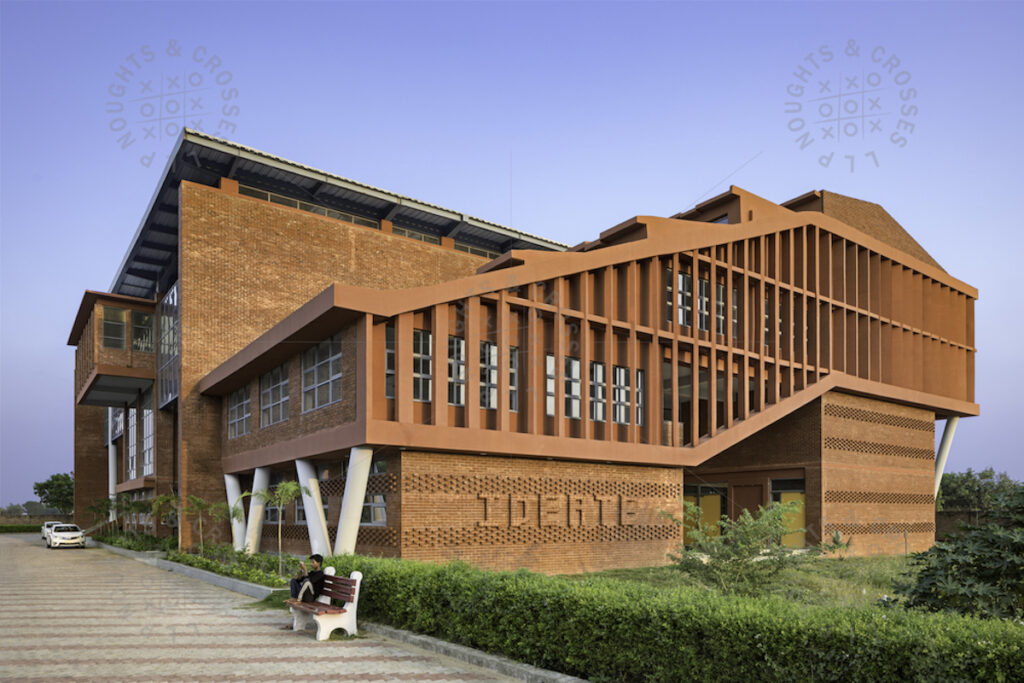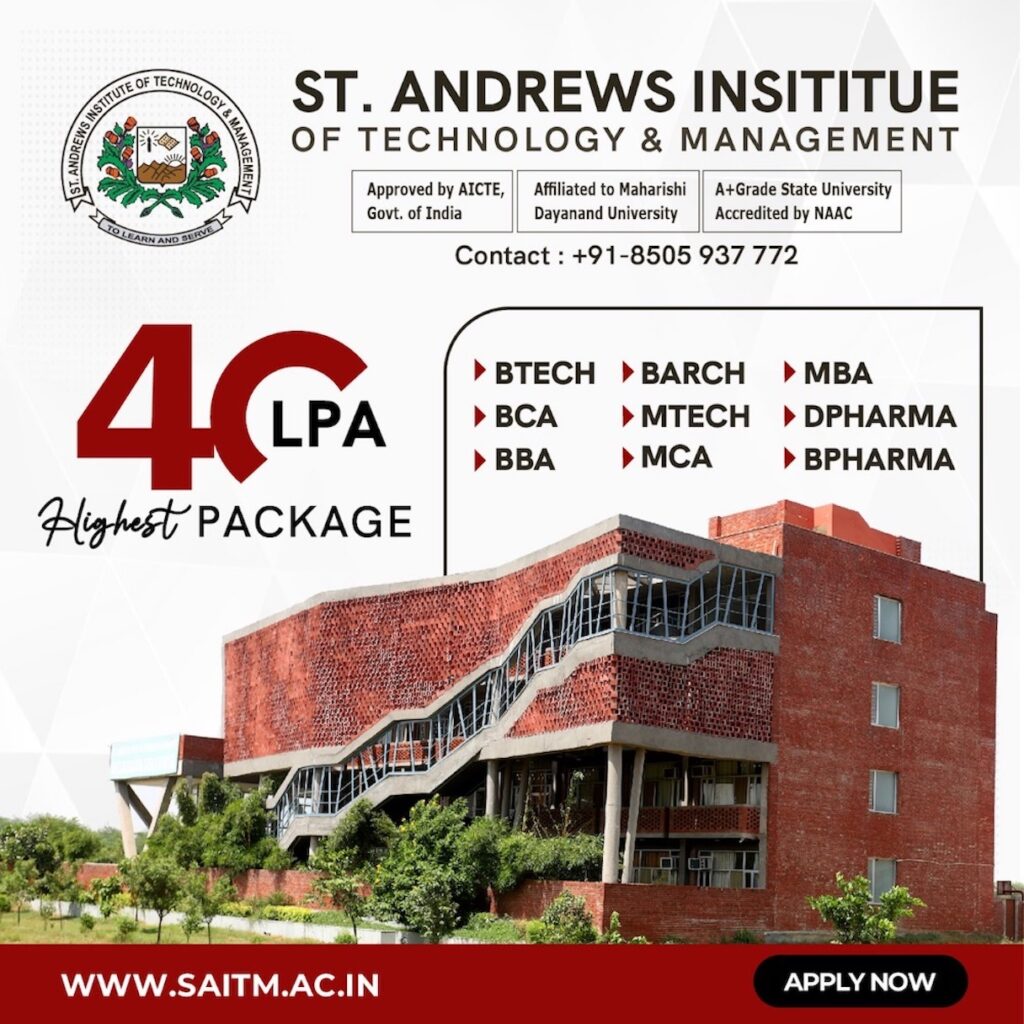D Pharma 2 Year Syllabus
The D Pharma 2 Year Syllabus is carefully structured to equip students with a comprehensive foundation in pharmaceutical sciences and essential practical skills. This syllabus spans a range of subjects designed to prepare students thoroughly for a career in pharmacy, covering both theoretical and hands-on learning in the field.
The first year typically covers subjects like Pharmaceutics, Pharmaceutical Chemistry, Pharmacognosy, and Biochemistry, focusing on the basics of drug formulation, chemical properties of drugs, and natural drug sources.
In the second year, the syllabus advances into areas such as Pharmacology, Hospital and Clinical Pharmacy, and Drug Store and Business Management, emphasizing the therapeutic effects of drugs, patient care, and the essentials of managing a pharmacy.
Throughout the course, students engage in both theoretical learning and hands-on practicals, ensuring they are well-prepared for their professional careers.
Some of the most opted courses in India and St. Andrews college or different Engineering college or Management colleges are as follows:-
- Btech
- Btech CSE
- BCA
- Btech ETCE
- MTech
- BBA
- MBA
- MCA
- DPharma – St. Andrews College of Pharmacy
- BPharma – St. Andrews College of Pharmacy
- BArch – St. Andrews College of Architecture
Overview of the D Pharma 2-Year Curriculum

The D. Pharma (Diploma in Pharmacy) is a 2-year undergraduate program designed to prepare students for careers in the pharmaceutical industry. The curriculum is structured to provide both theoretical knowledge and practical skills necessary for the practice of pharmacy.
Year 1
1. Pharmaceutics-I:
- Basics of pharmacy and pharmaceutical science.
- Introduction to different dosage forms.
- Pharmaceutical calculations and packaging of drugs.
2. Pharmaceutical Chemistry-I:
- Fundamentals of chemistry related to drugs and pharmaceuticals.
- Study of inorganic pharmaceuticals, their preparation, and properties.
- Identification tests for different compounds.
3. Pharmacognosy:
- Study of medicinal plants and their uses.
- Identification and extraction of active constituents.
- Preparation of herbal formulations.
4. Biochemistry & Clinical Pathology:
- Basics of biochemistry including carbohydrates, proteins, and lipids.
- Enzyme action and metabolism.
- Clinical pathology tests and their interpretation.
5. Human Anatomy & Physiology:
- Study of human body systems (e.g., circulatory, respiratory, nervous).
- Functions of different organs and tissues.
- Introduction to homeostasis and common diseases.
6. Health Education & Community Pharmacy:
- Basics of health education and promotion.
- Role of pharmacists in community health.
- Understanding common diseases and their prevention.
Year 2
1. Pharmaceutics-II:
- Advanced concepts in pharmaceutical science.
- Study of drug delivery systems and novel formulations.
- Sterilization, storage, and distribution of pharmaceuticals.
2. Pharmaceutical Chemistry-II:
- Study of organic chemistry as it relates to pharmaceuticals.
- Introduction to the synthesis of medicinal compounds.
- Pharmaceutical analysis techniques.
3. Pharmacology & Toxicology:
- Basic principles of pharmacology including drug action, side effects, and drug interactions.
- Study of toxicology and poisons, including treatment of poisoning.
- Clinical applications of pharmacology in therapy.
4. Pharmaceutical Jurisprudence:
- Study of laws and regulations governing the practice of pharmacy.
- Understanding drug regulations, licensing, and ethical practices.
- Introduction to the role of the pharmacist in society.
5. Drug Store & Business Management:
- Basics of business management in a pharmacy setting.
- Inventory control, purchasing, and financial management.
- Understanding the operation of a drug store.
6. Hospital & Clinical Pharmacy:
- Role of the pharmacist in a hospital setting.
- Clinical pharmacy practices, including patient counseling and drug therapy monitoring.
- Introduction to hospital formulary systems.
First Year D Pharma Syllabus: Core Subjects and Topics

The First Year D. Pharma syllabus focuses on foundational subjects that introduce students to the basics of pharmacy, chemistry, biology, and healthcare. Below is an overview of the core subjects and the key topics covered in the first year:
1. Pharmaceutics-I
- Introduction to Pharmacy: History, scope, and definition of pharmacy.
- Dosage Forms: Classification and study of various pharmaceutical dosage forms (tablets, capsules, liquids, etc.).
- Pharmaceutical Calculations: Measurement systems, calculation of doses, and dilutions.
- Metrology: Weights and measures used in pharmacy.
- Prescription: Handling, reading, and dispensing of prescriptions.
- Pharmaceutical Incompatibilities: Types and management of drug incompatibilities.
- Packaging of Pharmaceuticals: Types of containers and closures used in packaging of pharmaceuticals.
2. Pharmaceutical Chemistry-I
- Inorganic Chemistry: Study of inorganic compounds used in pharmaceuticals.
- Acids, Bases, and Buffers: Concepts, types, and pharmaceutical relevance.
- Water: Purification of water, types of water used in pharmaceuticals (e.g., distilled water).
- Volumetric Analysis: Basics of titration and types (acid-base, redox, complexometric titrations).
- Qualitative Analysis: Identification tests for common pharmaceutical salts.
- Inorganic Medicinal Agents: Study of inorganic compounds used as medicinal agents (e.g., antacids, electrolytes).
3. Pharmacognosy
- Introduction to Pharmacognosy: Definition, history, and scope of pharmacognosy.
- Sources of Drugs: Natural sources (plant, animal, mineral) of drugs.
- Classification of Crude Drugs: Organized, unorganized, and their methods of collection and preparation.
- Microscopy and Powder Analysis: Techniques for identifying crude drugs through microscopic examination.
- Extraction of Active Constituents: Methods of extraction and isolation of active ingredients from plants.
- Study of Medicinal Plants: Detailed study of selected medicinal plants (e.g., aloe, cinchona, digitalis).
4. Biochemistry & Clinical Pathology
- Carbohydrates: Structure, classification, and functions of carbohydrates in the body.
- Proteins: Structure, classification, and biological importance of proteins.
- Lipids: Classification, structure, and functions of lipids.
- Enzymes: Nature, classification, and mechanism of enzyme action.
- Vitamins: Classification, functions, and deficiency diseases associated with vitamins.
- Clinical Pathology: Basics of pathology and common clinical tests (e.g., blood, urine analysis).
5. Human Anatomy & Physiology
- Introduction to Human Body: Organization, structure, and function of human body systems.
- Skeletal System: Structure, functions, and disorders of bones and joints.
- Muscular System: Types of muscles, their functions, and common muscular disorders.
- Cardiovascular System: Structure and function of the heart, blood vessels, and blood.
- Respiratory System: Structure and function of the respiratory organs.
- Digestive System: Structure and function of the gastrointestinal tract and accessory organs.
- Nervous System: Overview of the nervous system, structure and functions of neurons, brain, and spinal cord.
6. Health Education & Community Pharmacy
- Health Education: Concepts of health, illness, and factors affecting health.
- Nutrition: Importance of nutrition and balanced diet in maintaining health.
- Preventive Measures: Immunization, hygiene, and sanitation in community health.
- First Aid: Basic principles and practices of first aid.
- Role of Pharmacist in Community: Responsibilities of a pharmacist in community healthcare settings.
- Family Planning: Methods, importance, and role of pharmacists in family planning.
Second Year D Pharma Syllabus: Advanced Subjects and Topics

The Second Year D. Pharma syllabus builds on the foundational knowledge acquired in the first year, focusing on more advanced subjects. This year includes in-depth study of pharmaceutical sciences, pharmacology, pharmaceutical jurisprudence, and management aspects related to pharmacy practice. Below is an overview of the advanced subjects and key topics covered in the second year:
1. Pharmaceutics-II
- Dispensing Pharmacy: Principles of dispensing, compounding, and packaging of medicines.
- Prescription Handling: Advanced techniques in reading, interpreting, and dispensing prescriptions.
- Pharmaceutical Compounding: Preparation of various dosage forms such as ointments, creams, syrups, and powders.
- Sterilization: Methods of sterilization (e.g., autoclaving, filtration) and their importance in pharmacy.
- Pharmaceutical Packaging: Types of packaging materials, labeling, and storage conditions for pharmaceuticals.
- Biopharmaceutics: Study of the relationship between drug formulation and its therapeutic effect.
2. Pharmaceutical Chemistry-II
- Organic Chemistry: Structure, nomenclature, and reactions of organic compounds relevant to pharmaceuticals.
- Medicinal Chemistry: Design, synthesis, and chemical properties of medicinal agents.
- Pharmaceutical Analysis: Advanced techniques in drug analysis, including chromatography, spectroscopy, and titrimetry.
- Quality Control: Principles of quality control and quality assurance in pharmaceutical production.
- Synthetic Drugs: Study of synthetic pathways and properties of key drugs used in therapy.
- Analytical Methods: Application of modern analytical methods in drug quality assessment.
3. Pharmacology & Toxicology
- General Pharmacology: Basic principles of drug action, pharmacokinetics (absorption, distribution, metabolism, excretion), and pharmacodynamics.
- Autonomic Nervous System Pharmacology: Drugs affecting the autonomic nervous system (e.g., sympathomimetics, parasympatholytics).
- Central Nervous System Pharmacology: Study of drugs acting on the CNS (e.g., sedatives, analgesics, anesthetics).
- Cardiovascular Pharmacology: Drugs used in cardiovascular diseases (e.g., antihypertensives, antiarrhythmics).
- Chemotherapy: Study of antimicrobial, antiviral, antifungal, and anticancer drugs.
- Toxicology: Principles of toxicology, types of poisons, symptoms, and treatment of poisoning.
4. Pharmaceutical Jurisprudence
- Pharmacy Act: Overview of the Pharmacy Act, including registration and regulation of pharmacists.
- Drugs and Cosmetics Act: Study of laws related to the manufacture, sale, and distribution of drugs and cosmetics in India.
- Drugs Price Control Order: Understanding of the pricing regulations for essential medicines.
- Narcotic Drugs and Psychotropic Substances Act: Regulations concerning the use and control of narcotic drugs.
- Ethical Pharmacy Practice: Legal and ethical issues in pharmacy practice, including confidentiality, patient rights, and professional conduct.
- Pharmacy Council of India: Role and functions of the Pharmacy Council of India in regulating pharmacy education and practice.
5. Drug Store and Business Management
- Introduction to Business Management: Basic concepts of business management, including planning, organization, staffing, and control.
- Drug Store Management: Operation and management of a retail pharmacy, including inventory control, purchasing, and sales.
- Financial Management: Basics of accounting, financial statements, and budgeting in a pharmacy setting.
- Marketing of Pharmaceuticals: Principles of pharmaceutical marketing, including promotion, pricing, and distribution strategies.
- Inventory Control: Techniques for managing inventory in a pharmacy, including stock levels, reordering, and expiry management.
- Retail Management: Best practices for customer service, merchandising, and store layout in a retail pharmacy.
6. Hospital and Clinical Pharmacy
- Hospital Pharmacy: Structure and function of a hospital pharmacy, including the role of the pharmacist in a hospital setting.
- Clinical Pharmacy: Principles of clinical pharmacy, including patient counseling, drug therapy monitoring, and adverse drug reaction reporting.
- Hospital Formulary: Preparation, maintenance, and use of the hospital formulary.
- Drug Information Services: Role of the pharmacist in providing drug information to healthcare professionals and patients.
- Clinical Trials: Basics of clinical trials, including phases, ethical considerations, and regulatory requirements.
- Therapeutic Drug Monitoring: Importance of monitoring drug levels in patients to optimize therapy and minimize toxicity.
Laboratory and Practical Sessions in D Pharma

Laboratory and practical sessions are a crucial part of the D. Pharma curriculum, providing hands-on experience and reinforcing the theoretical knowledge gained in the classroom. These sessions are designed to develop practical skills essential for a career in pharmacy.
Below is an overview of the laboratory and practical sessions typically included in the D. Pharma course:
First Year D. Pharma Practical Sessions
1. Pharmaceutics-I Practical
- Preparation of Simple Dosage Forms: Exercises in preparing solutions, syrups, suspensions, emulsions, ointments, creams, and powders.
- Pharmaceutical Calculations: Practical application of dose calculations, dilution, and concentration of solutions.
- Handling and Packaging: Techniques for packaging various dosage forms, labeling, and storage.
- Microscopy: Use of microscopes for the identification of powders and other substances.
- Incompatibilities: Experiments to study physical and chemical incompatibilities in prescriptions.
2. Pharmaceutical Chemistry-I Practical
- Volumetric Analysis: Performing titrations (acid-base, redox, complexometric) and understanding their applications in pharmacy.
- Qualitative Analysis: Identification tests for cations and anions, and analysis of inorganic compounds used in pharmaceuticals.
- Preparation of Inorganic Compounds: Synthesis and study of properties of commonly used inorganic medicinal compounds.
- Purification Techniques: Crystallization, distillation, and other methods for purifying chemical compounds.
3. Pharmacognosy Practical
- Microscopic Examination of Crude Drugs: Identification of plant tissues and cells, studying different parts of medicinal plants under the microscope.
- Extraction Techniques: Isolation of active constituents from plant materials using various extraction methods.
- Chemical Tests for Identification: Performing chemical tests to identify active constituents like alkaloids, glycosides, tannins, and essential oils.
- Herbarium Preparation: Collection, identification, and preservation of medicinal plants in a herbarium.
4. Biochemistry & Clinical Pathology Practical
- Qualitative Analysis of Biomolecules: Identification tests for carbohydrates, proteins, and lipids.
- Enzyme Activity: Experiments to study the action of enzymes and factors affecting enzyme activity.
- Urine Analysis: Performing tests to detect abnormal constituents in urine.
- Blood Tests: Basics of blood sampling and tests such as hemoglobin estimation, blood glucose levels, and blood grouping.
5. Human Anatomy & Physiology Practical
- Study of Human Skeleton: Identification and study of bones and joints.
- Examination of Body Tissues: Microscopic examination of various tissues (e.g., epithelial, muscular, nervous).
- Blood Pressure Measurement: Techniques for measuring and interpreting blood pressure.
- Pulse Rate and Respiratory Rate: Measurement and understanding of pulse rate and respiratory rate in different conditions.
- First Aid Techniques: Practical training in administering first aid for common injuries and emergencies.
Second Year D. Pharma Practical Sessions
1. Pharmaceutics-II Practical
- Compounding of Advanced Dosage Forms: Preparation of sterile products, sustained-release formulations, and cosmetics.
- Sterilization Techniques: Practical application of different sterilization methods (e.g., autoclaving, dry heat sterilization, filtration).
- Pharmaceutical Packaging: Experimentation with different packaging materials and testing their suitability for various dosage forms.
- Pharmaceutical Testing: Performing tests for uniformity of weight, disintegration time, and dissolution rate of tablets and capsules.
2. Pharmaceutical Chemistry-II Practical
- Organic Chemistry Experiments: Synthesis of simple organic compounds and study of their reactions.
- Medicinal Chemistry: Analysis and synthesis of medicinally important compounds.
- Chromatography: Use of paper, thin-layer, and column chromatography for separating and identifying compounds.
- Spectroscopy: Introduction to UV-Visible spectroscopy and its application in the analysis of drugs.
3. Pharmacology & Toxicology Practical
- Bioassays: Conducting bioassays to determine the potency of drugs using animal tissues or organs.
- Pharmacological Screening: Screening of drugs for their pharmacological activity using animal models.
- Toxicological Studies: Experiments to study the toxic effects of various substances and the antidotes used in cases of poisoning.
- Drug Action on Animals: Observation of the effects of drugs on isolated tissues, organs, and whole animals.
4. Hospital and Clinical Pharmacy Practical
- Hospital Visits: Visits to hospital pharmacies to understand the practical aspects of hospital pharmacy operations.
- Drug Information Services: Training in providing drug information to healthcare professionals and patients.
- Clinical Case Studies: Analysis and discussion of clinical case studies to understand drug therapy management.
- Therapeutic Drug Monitoring: Practical training in monitoring drug levels in patients to optimize therapeutic outcomes.
5. Drug Store and Business Management Practical
- Inventory Management: Practical exercises in managing stock levels, ordering, and maintaining records in a simulated pharmacy environment.
- Retail Pharmacy Operations: Role-playing exercises to simulate customer service, prescription handling, and sales in a retail pharmacy setting.
- Financial Management: Practical exercises in budgeting, accounting, and financial record-keeping for a pharmacy.
FAQ’s
What are the subjects in D pharmacy 2 year?
In the second year of a Diploma in Pharmacy (D Pharma), the subjects typically include Pharmaceutics II, Pharmaceutical Chemistry II, Pharmacology and Toxicology, Pharmaceutical Jurisprudence, Drug Store and Business Management, and Hospital and Clinical Pharmacy. These subjects focus on advanced pharmaceutical concepts, drug laws, business management, and practical applications in clinical and hospital settings.
What is the syllabus of D Pharma?
The D Pharma 2 year syllabus typically includes subjects like Pharmaceutics, Pharmaceutical Chemistry, Pharmacology, Pharmacognosy, and Biochemistry. The curriculum covers drug formulation, drug interactions, medicinal plant properties, and basic pharmaceutical sciences. Practical sessions complement theoretical learning, focusing on laboratory work, dispensing techniques, and clinical pharmacy. The course is designed to provide a comprehensive foundation in pharmacy practice.
How many practicals are in D Pharma 2nd year?
The D Pharma 2 Year Syllabus for the second year generally includes around 3 to 4 practical subjects, each linked to a core area of pharmacy. These practicals typically cover subjects such as Pharmaceutical Chemistry, Pharmacology, Pharmacognosy, and Hospital & Clinical Pharmacy. While the exact number of practical courses may vary by institution, students are required to conduct multiple experiments in each subject, enhancing their hands-on experience in these critical areas.jects like Pharmaceutical Chemistry, Pharmacology, Pharmacognosy, and Hospital & Clinical Pharmacy. The exact number may vary depending on the institution, but students are generally required to complete several practical experiments in each subject.
What are the main subjects covered in the 2nd year of D Pharma?
The main subjects typically covered in the 2nd year of D Pharma include Pharmacology, Pharmaceutical Chemistry, Pharmacognosy, and Hospital & Clinical Pharmacy.
How many practical subjects are there in the 2nd year of D Pharma?
The D Pharma 2 Year Syllabus typically includes 3 to 4 practical subjects in the second year, aligned with core subjects such as Pharmaceutical Chemistry, Pharmacology, and Pharmacognosy. These practical courses provide hands-on experience and deepen understanding of the key areas in pharmaceutical sciences.
Write the name of five D Pharma colleges.
Here are five notable colleges in India offering the Diploma in Pharmacy (D.Pharm) program:
- Jamia Hamdard University, New Delhi: Recognized for its comprehensive pharmacy programs, Jamia Hamdard offers a well-structured D.Pharm course.
- JSS College of Pharmacy, Ooty: Affiliated with JSS Academy of Higher Education & Research, this college provides quality education in pharmaceutical sciences.
- Manipal College of Pharmaceutical Sciences (MCOPS), Manipal: Part of Manipal Academy of Higher Education, MCOPS is renowned for its pharmacy courses, including D.Pharm.
- Delhi Pharmaceutical Sciences and Research University (DPSRU), New Delhi: As a dedicated pharmaceutical university, DPSRU offers a robust D.Pharm program.
- Annamalai University, Chidambaram: This university provides a D.Pharm course with a focus on practical and theoretical knowledge in pharmacy.




